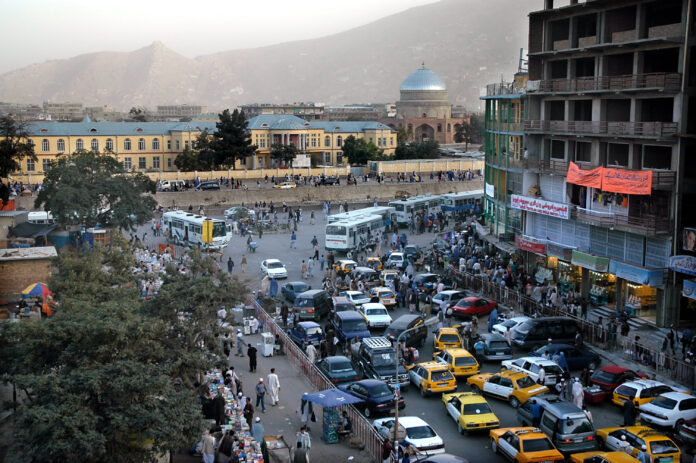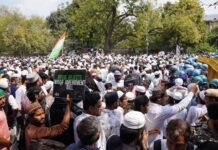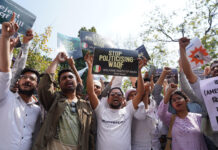In a crackdown on nepotism, the Afghan authorities have ordered that the sons of public officials appointed to public bodes be fired and replaced by others.
The decree, by the Administrative Office of the Islamic Emirate, says that independent directories and ministries should avoid appointing employees based on personal relations.
The decree said: “Amir Al Mumineen Sheikh Hibatullah Akhundzadeh, the leader of the Islamic Emirate of Afghanistan, has issued an order to fire the sons of the Islamic Emirate of Afghanistan according to the decree 30 dated 13/08/1483 AH. All officials of independent ministries and directories have been directed to refrain from hiring individuals for their duties based on family ties and personal relationships.
“It is stated in the ruling that officials of all Islamic Emirate offices, if they have appointed one or more of their sons in offices under their umbrella after the notification of this order, their sons will be fired and they must appoint other people instead.”
Since coming to power in August 2021, it is acknowledged that the IEA has cracked down on corruption which was sky high during the era of the NATO occupation.
In February Transparency International ranked Afghanistan 150th in its annual corruption perception index for 2020 – 24 places higher than under NATO occupation in 2021.
The ranking confirmed widespread anecdotal evidence in Afghanistan that the Islamic Emirate has made significant anti-corruption strides.
Subscribe to our newsletter and stay updated on the latest news and updates from around the Muslim world!
For more than a decade NATO-occupied Afghanistan was continuously ranked among the ten most corrupt governments. In 2011 the country was ranked 180th, next to North Korea and Somalia.
Since liberating the country of foreign occupiers in August 2021, the IEA has reportedly reduced bribery and extortion in public services, which has provided financial lifelines for an isolated government that faces crippling international economic and banking sanctions.
Moreover, the World Bank recently delivered an upbeat assessment of the Afghan economy in the first nine months of the fiscal year 2022, citing high exports, a stable exchange rate and strong revenue collection.
The World Bank assessment noted that inflationary pressure has eased since July of last year, decelerating by half to 9.1 % in November, while most basic food and non-food items remain widely available. The report attributed the decline in inflation to lower global oil and food prices, along with a stable exchange rate.























